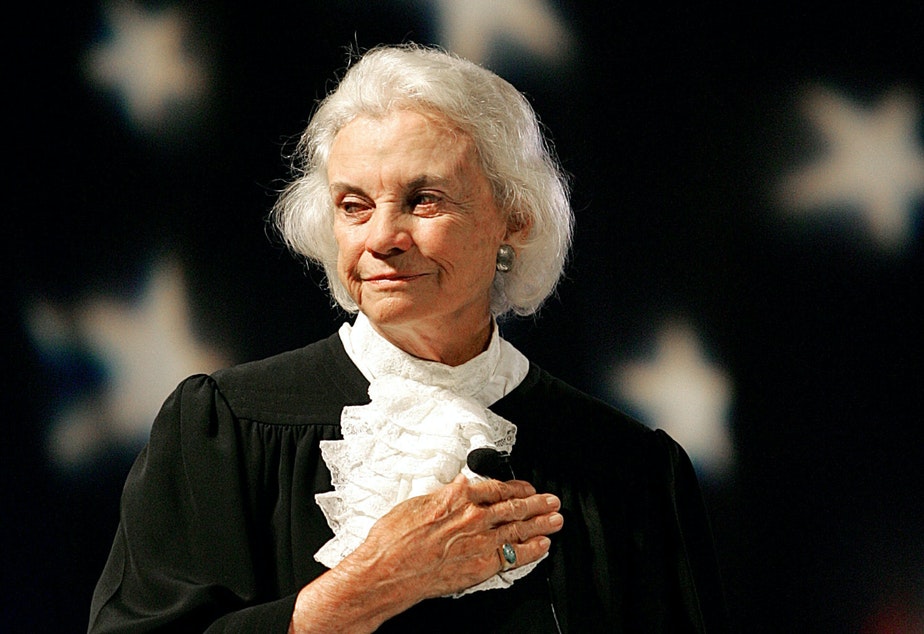
In 1981 Sandra Day O'Connor made history by becoming the first woman to serve as a justice on the U.S. Supreme Court. During her 25-year tenure, she earned a reputation as a pragmatic centrist voice that judged each case on its individual merits, while voting for what she believed best fit the intentions of the U.S. Constitution. Notably, O’Connor was a key swing vote in many important cases, including the upholding of Roe v. Wade. Her influence on women is also seen in the legal profession, where her appointment to the Supreme Court and subsequent performance changed the landscape for women lawyers forever.
During her time on the court, some publications ranked O'Connor among the most powerful women in the world. Following her retirement in 2006, O'Connor received numerous accolades. Arizona State University named its law school after the distinguished justice and President Obama honored her with the Presidential Medal of Freedom in 2009. Her legacy lives on through the Sandra Day O'Connor Institute, which she founded in 2009 to advance civil discourse, civic engagement, and civics education.
Long before O'Connor became the first female Supreme Court justice, she was breaking barriers at Stanford Law School as a teenager. When she was only 16 years old, O'Connor enrolled in Stanford University where she sailed through her courses and became Senior Class President. In a program in which she finished two degrees in just six years, O'Connor first graduated magna cum laude in 1950 with a Bachelor of Arts degree in economics, before receiving her law degree from Stanford in 1952. While in law school, O'Connor distinguished herself as a member of the board of editors for the Stanford Law Review. Upon graduation, she was at the top of her class, graduating third out of 102 students.
As much as Stanford influenced her professional life, it comes as no surprise that O'Connor stayed extremely loyal to her alma mater over the years. In the 1990's two of her Stanford visits particularly stand out. In 1997, O'Connor was back on campus to preside over a moot-court dramatization. Then two years later, on a moonlit night in the campus quad, she was there to inaugurate Stanford Law School's very first female dean, who described the justice as, "the gold standard for women lawyers for generations to come."
But it was in 2004 when O'Connor was asked to deliver Stanford's 113th Commencement address to graduating students, that she touched on some of the core beliefs that defined her esteemed legal career. Namely, she urged the graduates to remember that America is a, “nation built on pride in sacrifice and commitment to shared values.” And because of this, she hoped that, “some of you graduates will yourselves go on to spending part or all of your lives in public service."
In countless interviews throughout her life, O'Connor credited her time at Stanford for shaping the course of her life, particularly motivating her to seek a lifelong commitment to justice. Because of this, her legacy continues to be not only vital to her alma mater, but to the rest of the country that benefited from her service.
